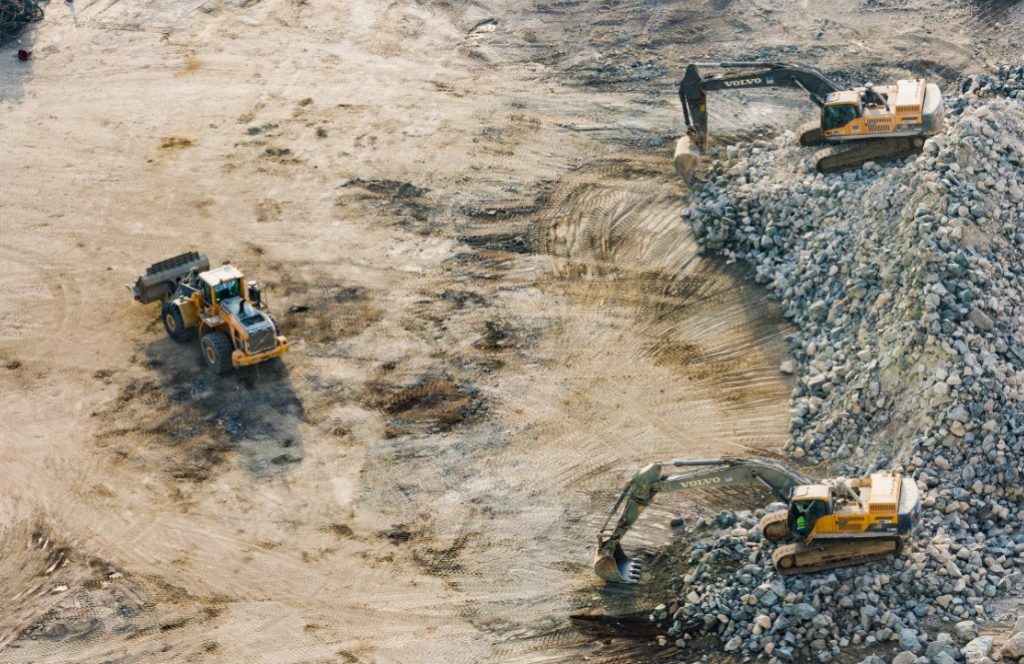How to Rent a Crusher for Construction Projects

While there are often discussions about whether certain types of construction equipment should be rented or purchased, there’s no denying that sometimes it just makes sense to rent. This is especially true when it comes to the use of a crusher. Sometimes it isn’t needed on a consistent enough basis to warrant buying. Even if it is, you’ll want to choose from the best and safest options, which is not possible when you own the equipment and years have passed. There are a few things you should know before actually renting a crusher.
Selecting a Vendor
Choosing a rental company is something that should be taken seriously. It’s because the company that you choose can make the difference in the outcome of the project, including whether or not you’re able to achieve on-time and within budget completion. The reason this is a critical aspect of the project is because equipment that malfunctions is both a liability and a waste of time. You can potentially lose a day if the crusher is not working properly.
Perhaps one of the most important aspects of your vendor selection is whether or not they provide quality customer service. In fact, even if you do experience a problem with equipment, the issue won’t be catastrophic if you’re working with a vendor that’s accessible around the clock. Let’s face it, equipment malfunctions and breaks down. It’s a fact of life. However, having a non-responsive vendor can make life more difficult than necessary.
A key aspect of choosing a vendor is their location. Why? Because you want to make sure they are within a short proximity to address any issues that arise, such as the need to have another crusher delivered to replace one that has malfunctioned. While you might be able to find a crusher that’s cheaper in another town, you’ll want to weigh the pros and cons of choosing the less expensive option.
Signing Up for Training
Given the stringent regulatory requirements and the need to make safety a priority, the availability of training is something that’s mandatory. Crushers are not all the same, which means you’ll need to understand how a particular unit functions. Even for someone that is mechanically inclined and technically savvy, it’s not always possible to be intuitive in figuring out how some machinery works. The company from which you choose to rent should have a training program that enables all employees that will use the crusher a chance to learn how it works and how to maintain safety.
Keep in mind that just because an employee is certified in the use of heavy equipment doesn’t mean they don’t need training on a crusher. Training on how specific equipment works provides the type of guidance that can optimize efficiency and safety. Training can literally save lives on a construction site. There are periodic reminders of this fact when news about construction site injuries are reported.
Reading the Contract
The process for renting a crusher will include a contractual agreement that spells out the details. This is a document that should be read thoroughly so that there are no surprises. For instance, the agreement should outline the condition of the crusher and what will happen if there are mechanical problems. There will also be information about the costs involved and how long you will rent the unit. These details will matter because it probably includes a daily price, but there might be an option to rent it for a specified term. If so, you’ll need to find out if it can be returned before the contract term ends. You should also get clarity about any necessary deposits and insurance.
While renting is certainly a great option for any type of heavy duty equipment used in construction, the above mentioned considerations are important, but that’s not all. You should also ensure due diligence by reading reviews to find out what other customers are saying. You don’t want to be surprised to find out that you chose a vendor with notorious issues. One clue that you might have is the companies maintenance schedule. That’s something else that you can ask about during the rental process.

















